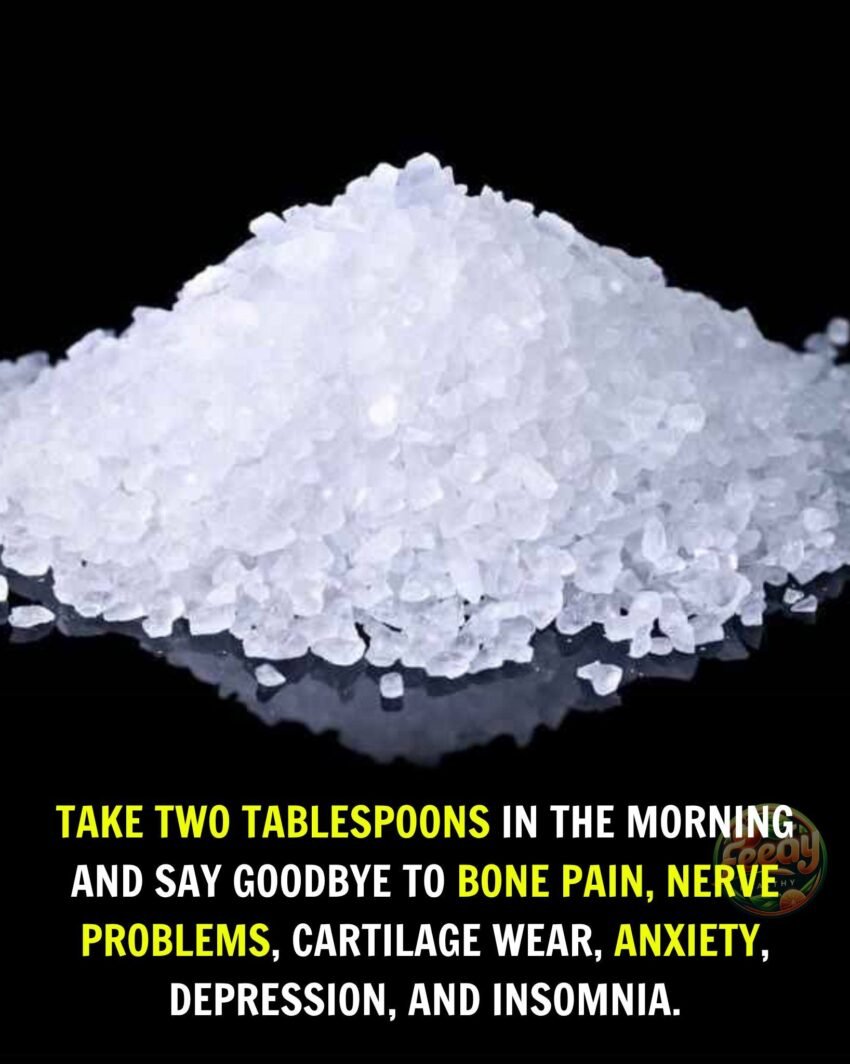It looks like you want to understand if sodium chloride (table salt) has any connection or effects related to bone pain, nerve problems, cartilage wear, anxiety, depression, and insomnia. Here’s a detailed look:
Sodium Chloride Overview
-
Sodium chloride (NaCl) is common table salt.
-
It’s essential for fluid balance, nerve transmission, and muscle function.
-
Usually consumed as part of diet.
Possible Links or Effects:
1. Bone Pain
-
Excessive salt intake can lead to calcium loss in urine.
-
This might contribute to lower bone density over time, potentially worsening bone health.
-
However, salt alone doesn’t directly cause bone pain but can influence bone metabolism negatively if intake is very high.
2. Nerve Problems
-
Sodium is critical for nerve function, but imbalances (too much or too little) can affect nerve signaling.
-
High salt intake has not been directly linked to nerve damage but can influence blood pressure and cardiovascular health, indirectly impacting nerve health.
-
Conditions like hypertension can worsen nerve issues over time.
3. Cartilage Wear
-
No direct evidence that sodium chloride causes cartilage wear.
-
Cartilage wear is typically linked to mechanical stress, inflammation, and aging.
-
Excess salt may worsen inflammation in some individuals, possibly impacting joint health indirectly.
4. Anxiety and Depression
-
Salt intake influences blood pressure and electrolyte balance, which can affect brain function.
-
Some studies suggest high salt intake might exacerbate stress responses.
-
However, a direct, consistent link between salt and mood disorders like anxiety and depression is not well-established.
5. Insomnia
-
Excess salt can cause fluid retention and increased blood pressure, possibly affecting sleep quality.
-
High sodium intake might be linked to worse sleep patterns in some studies, but evidence is mixed.
Summary
-
Moderate salt intake is essential and generally safe.
-
Excessive sodium chloride consumption can indirectly worsen bone health and possibly affect nerve function and sleep.
-
No strong direct link to cartilage wear, anxiety, or depression, but high salt might influence inflammation or stress responses.
-
For bone and nerve health, calcium, magnesium, and overall diet quality matter more.
If you’re experiencing these symptoms, it’s best to consult a healthcare professional to explore causes beyond just salt intake, including diet, lifestyle, and underlying conditions.
